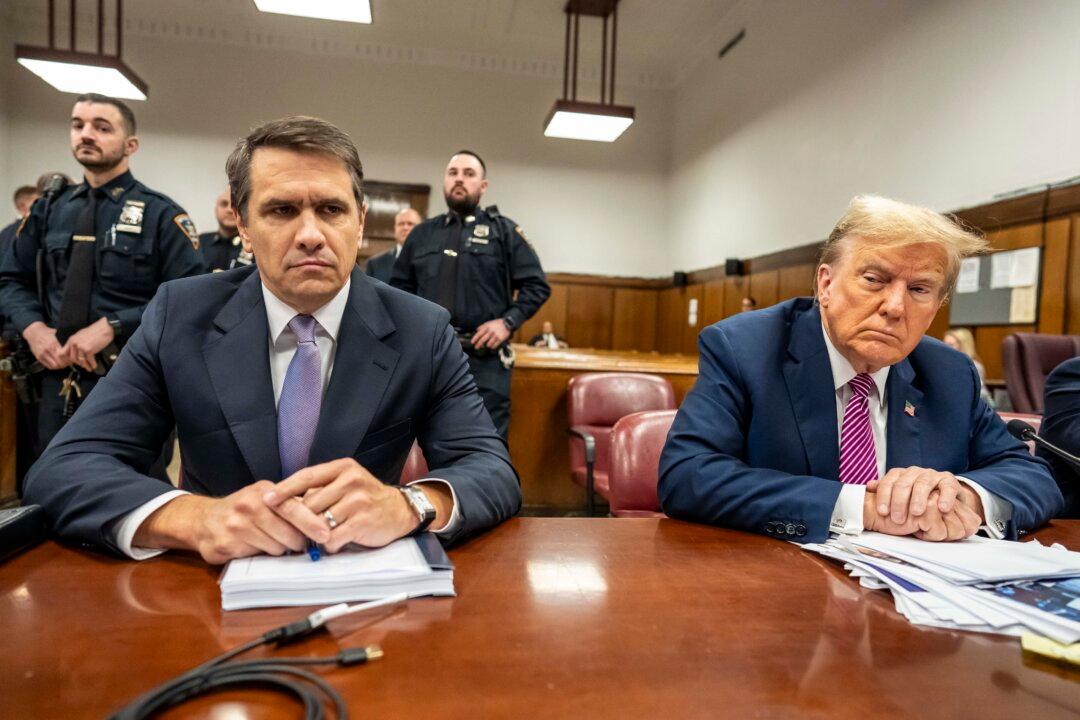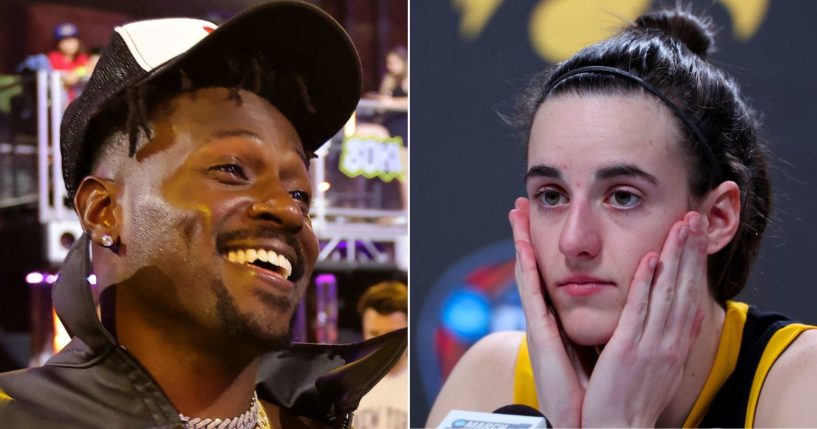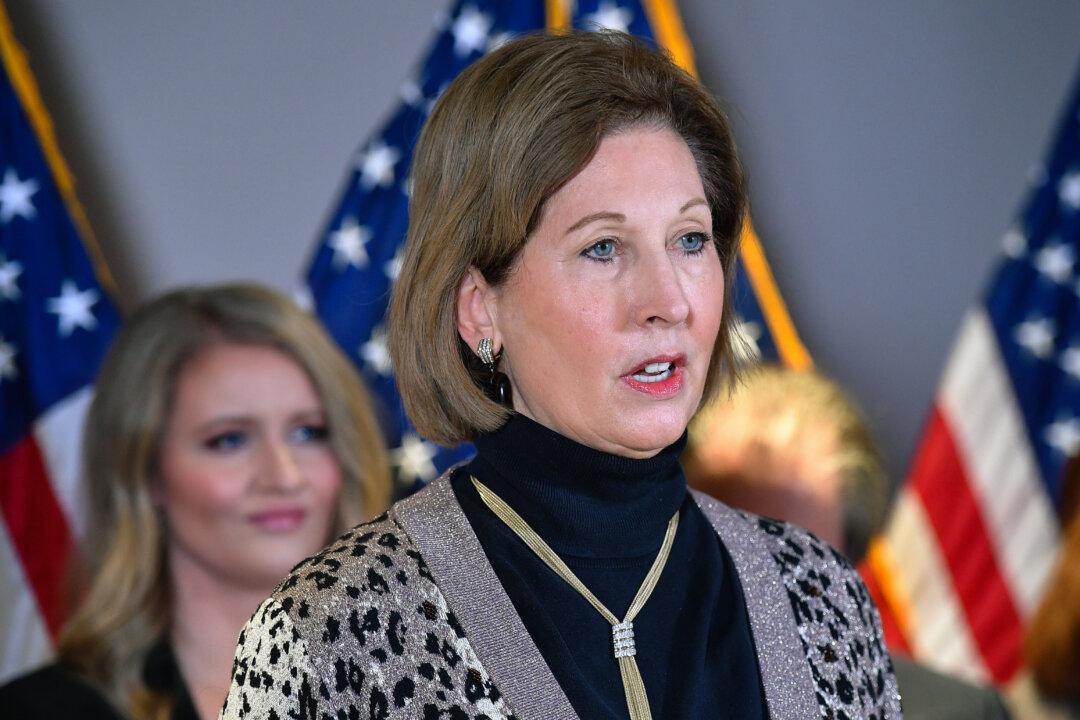American Lookout Headlines receives compensation from affiliate partners for links on the site. Here's our complete list of Affiliate sites.
First Column 1
- Iran’s Foreign Minister Issued Warning To Israel Just Before Missile Strike...
- Iran Has Emergency War Meeting...
- ...Tehran Downplays The Attack
- Flights Divert Around Western Iran as One Report Says Explosions Heard Near Isfahan [Epoch]...
- ...3 Major Explosions Reported in Isfahan, Iran Where Iranian Nuclear Facilities are Located
- Israel Launches Retaliatory Strike Against Iran...
NR Only Headline
Advertisement
First Column 2
- Dan Bongino Perfectly Sums Up The Sham ‘Hush Money’ Case Against Trump...
- ...CNN Analyst Predicts Six Alternates Will Be Needed In Trump Trial
- Video Released Showing Fully Burned Body Wheeled Onto Ambulance...
- ...Man Sets Himself on Fire Outside Trump ‘Hush Money’ Trial
- ...Man Who Self-Immolated Outside Trump Trial Penned Shocking Manifesto
- ‘Hush Money’ Judge Sides With Trump’s Legal Team, Grants Access to Private Information...
- Juror Offers Hope for Trump...
If you like American Lookout Headlines, please bookmark us in your browser.
First Column 3
First Column 4
First Column 5
First Column 6
- Caitlin Clark Blocks Former NFL Star Antonio Brown After Extremely Crude Posts...
- Transgender Teenager Charged With Planning School Shooting After Police Discover ‘Manifesto’ [Epoch]...
- Massive Hollywood Film Studios Eye Merger...
- The Film Causing An Uproar, Terrifying Future Of America Or Woke Propaganda?
"
Websites
- Gateway Pundit
- WLT Report
- The Epoch Times
- Conservative Brief
- Vigilant News
- 100 Percent Fed Up
- Trending Politics
- Big League Politics
- Freedom First Network
- New York Sun
- New York Post
- Right Side Broadcasting
- Conservative Treehouse
- People's Pundit Daily
- Zero Hedge
- Patriots.win
- Lucianne
- One America News Network
- Legal Insurrection
- Wayne Dupree
- Free Republic
- Intellectual Froglegs
- Western Journal
- Steve Bannon's War Room
Second Column 1
- Fani Willis’ Top Prosecutor Warned That Her Behavior Could Land Her In PRISON...
- Supreme Court Hearing Trump Presidential Immunity Bid...
- ...Trump Makes His Case
- FBI Director Issues Warning...
- ...Chinese Hackers Waiting To Attack US Infrastructure
- Senate Scrambles To Reach FISA Deal Before Midnight Deadline [Epoch]...
- Comer Threatens to Subpoena Biden Energy Secretary After She Finds Time for ‘The View’ But Not Congress [Epoch]...
Second Column 2
Second Column 3
- Elections Modeler Changes Arizona Senate, Key House Race Ratings to ‘Leans Democrat’ [Epoch]...
- RNC Seeks To Deploy 100,000 Election Integrity Workers Ahead Of 2024 Elections [Epoch]...
- Sidney Powell Handed Win After Judges Dismiss Disciplinary Effort by Texas State Bar [Epoch]...
- New York Democrat Charged With Filing Fake Signatures On Election Petition, Included Dead People...
- Motion To Vacate Speaker’s Chair Gains Momentum; Third GOP Rep. Supports Move...
MyPillow (NR)
Get the American Lookout Headlines daily newsletter
Second Column 5
Second Column 6
Telegram Accounts
Contact Us
Send Tips
Third Column 1
Third Column 2
Third Column 3
- Biden Restricts New Oil And Gas Leasing On 13 Million Acres Of Alaskan Land [Epoch]...
- Here’s What The Average Senior Couple Collects In Social Security Today...
- ...Here’s When The Average Worker Starts Saving For Retirement
- These Are The Money Moves I’ve Made That Have Improved My Happiness The Most...
- ...I’ve Been To Disney World 3 Times And Have Saved A Ton Of Money By Doing This One Thing
- Trader Joe’s Recalls Popular Herb Due To Salmonella Outbreak, Here Are The States Affected...
- What Happens To Bitcoin This Friday - Explosive Growth Predicted...
- Disappointed With The Amount Of Your Social Security Benefit? Here’s What To Do...
- Costco Is Selling An Autographed Tom Brady Rookie Card For $40,000...
- ...Costco Is Selling A Basketball Signed By Lakers MVPs
- American Banking Giant Comes Under Fire, MAGA Boycott Inbound...
Third Column 4
Third Column 6
- Chicago Woman in MAGA Hat Unleashes on Mayor Over Immigrant Spending Plan: 'Use Our Tax Money for Our People!'...
- Border Expert Exposes 1 Hidden Truth, He Blames Joe for This New Nightmare...
- Illegal Immigrant Accused Of Laken Riley Murder Freed By Homeland Security...
- Jurors Unable To Return Verdict In Murder Trial For Arizona Rancher George Alan Kelly...
Third Column 7: Facebook Links
Websites
- Gateway Pundit
- WLT Report
- The Epoch Times
- Conservative Brief
- Vigilant News
- 100 Percent Fed Up
- Trending Politics
- Big League Politics
- Freedom First Network
- New York Sun
- New York Post
- Right Side Broadcasting
- Conservative Treehouse
- People's Pundit Daily
- Zero Hedge
- Patriots.win
- Lucianne
- One America News Network
- Legal Insurrection
- Wayne Dupree
- Free Republic
- Intellectual Froglegs
- Western Journal
- Steve Bannon's War Room














